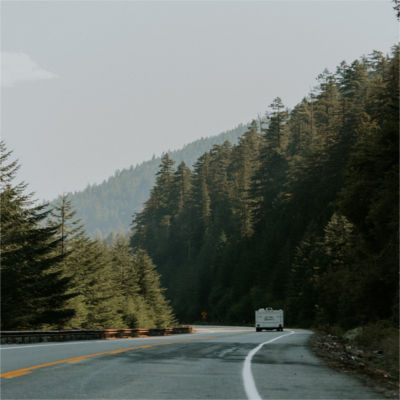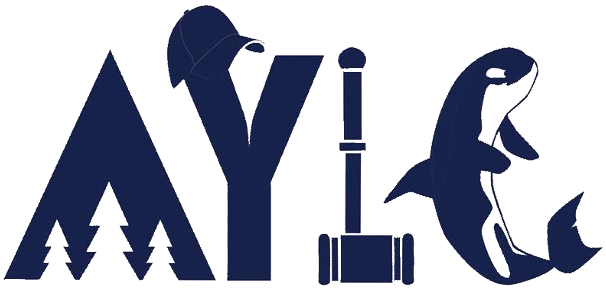Crossing the Canadian Border
Crossing the Canadian Border

Unless you fly to Juneau, the only way to or from our capital city is to drive through our neighbor to the east – Canada. Since July 2009, a law called the Western Hemisphere Travel Initiative requires more documentation to travel through Canada. The rules for travelling through Canadian waters are much the same.
What do I need to go through Canada?
If you are 16 years of age or older, you need one of the following: A passport, a US passport card, an enhanced Tribal Card, a Merchant Mariner’s card, an enhanced drivers’ license (if you live in a border state that has them available), or a trusted traveler card like NEXUS, FAST, or SENTRI. If you are under 16 and you are traveling with a parent who has proper documents, you can present an original birth certificate. If you are under 18, your parents can apply for a passport for you; if you are 18 or older, you can apply for a passport yourself.
When you get to the border, present one of the above. You will also need proof of US citizenship to reenter Alaska. Canada won’t allow you across the border if you don’t have the documents needed to leave Canada. As long as you don’t have any outstanding warrants in the USA or Canada, or any criminal convictions in either country, you will be granted access. If you have been convicted of DUI
- even as a minor – you will not be allowed to enter
What do I need to drive through Canada?
Canada will recognize your minor’s or regular Alaska drivers’ license. As in Alaska, you must have proof of insurance with you. Your Alaska proof of insurance card is adequate, as long as you are a tourist.
You also need to understand speed limits and distances posted in kilometers per hour. The rural road speed limit is 100 km/h, about 62 miles per hour.
What are the rules about taking guns across the border?
The rules about guns in Canada are strict. All handguns, bear spray, pepper spray, or mace brought into Canada must be listed on the Canadian National Handgun Registry before you bring them in. You must have an Authorization to Transport (ATT) permit obtained in advance from a Provincial or Territorial Chief Firearms Officer.
Trying to bring an unregistered handgun across the border is a serious offense. If you are caught doing so, the following will happen.
- You will be detained at the Canadian border station and will be turned over to the custody of the Royal Canadian Mounted
- You will have the right to speak to an attorney and also the right to speak with a representative from the S. consulate. But the nearest US consulate is in Vancouver – a long way from the Border at Beaver Creek, Yukon Territory.
- Your car will be impounded. You will have to pay a significant fee to have it
- You also will have to pay a minimum fine of $1,000.
- Your handgun will be confiscated and you WILL NOT be able to regain possession of it.
- It is also likely that you will be barred from re-entry into
If you are traveling to Canada with a hunting rifle or shotgun to go hunting, you must obtain a proper Canadian hunting license and declare your firearm. The fee for a Firearms Declaration is
$50. Visitors who borrow a firearm must first obtain a Non-Resident’s 60-Day Possessor License (S30). U.S. residents should register weapons with U.S. Customs before traveling to Canada to assure that you can reenter the US with the gun. Hunters are allowed to bring 200 rounds of ammunition; shooters entered in a competition can bring 1,500 rounds of ammunition. All hunting guns must be properly secured and stored.
Weapons that are prohibited include fully automatic guns, converted automatics, assault-type weapons and handguns with a barrel length less than 105mm (4 inches), and replicas of such weapons. Certain knives are also prohibited. A complete list can be found at the Canada Border Services Agency website. Canadian customs officials will automatically confiscate prohibited firearms. They will not be returned, and will ultimately be destroyed. The gun owner is not given the option to withdraw the request to enter Canada and return to the U.S. in order to retain possession of the prohibited firearm.
What are the rules about taking drugs across the border?
No illegal drugs are permitted. Yes, marijuana is illegal in Canada.
Any prescription drug brought across the border must be accompanied by a valid prescription and must be in the original packaging. If you can’t prove your prescription drug is legal by showing the prescription and original packaging, it is likely to be confiscated. You might have to pay a fine.
What are the rules about taking alcohol and tobacco across the border?
You are allowed to bring alcohol and tobacco with you on your trip to Canada if you are over 21 years old. But there are limits on the amounts allowed. Usually you have to stay a minimum of 24 hours to bring alcohol or tobacco into Canada.
Alcohol you can take into Canada is limited to 40 ounces of liquor, 1.6 quarts (about 2 bottles) of wine, or 9 quarts of beer or ale (about 24 12-ounce cans of beer). You must be 21 years old to bring alcohol back into the USA, and the amount is very limited (1 liter). Check with US Customs before you leave.
In Canada, the legal drinking age varies from province to province. In the two provinces on the Alaska border, Yukon Territory and British Columbia, is the legal drinking age is 19.
If you are 21 years old, you can bring up to 50 cigars, 200 cigarettes, 6.4 ounces of tobacco, or 200 tobacco sticks into Canada.
What happens if I am arrested in Canada?
If you are arrested, you will be given the opportunity to speak to a lawyer. You will be fingerprinted, photographed, and, if your offense is minor, you may be released on your own recognizance. You likely will have to pay a bail fee; for a minor offense, it will be under $1,000. You will have to pay in Canadian dollars. You will not be allowed to continue your trip in Canada and authorities will return you to the US. You may have to pay for your trip home.
The bail fee will be returned if you show up for your court date. An arrest based out of Beaver Creek border crossing has court proceedings at Whitehorse, Yukon Territory. Penalties vary depending on the offense you committed. Impaired driving is a fine of $1,000 and your ability to drive in Canada is suspended for six months. Underage drinking is a straight fine of $115. If you are caught with an illegal drug, the penalty depends on your past criminal record. You could face jail time or a substantial fine. If the Canadian police determine you are a flight risk, it is unlikely that you would be granted bail and they would detain you until your court date.
Although the charges will not carry over into the United States, and Canada cannot extradite you for minor offenses, if you do not return for your court date, Canadian authorities will issue a warrant for your arrest. Having an outstanding warrant on your record will prevent you from being able to travel internationally. Regardless of the offense, it is likely that any penalty will include a permanent ban from entry into Canada.
What do I need to consider about coming back into the USA?
You are prohibited from bringing back items that are deemed detrimental to the general welfare of the USA. This includes narcotics, drugs, drug paraphernalia, obscene publications, seditious or treasonous material, lottery tickets, fireworks, poisonous or toxic substances, and switchblade knives. You must have proof of citizenship to reenter the USA. If your passport or Tribal Card is stolen, you must go in person to the nearest consulate to get a temporary passport. Your driver’s license is not proof of citizenship.



